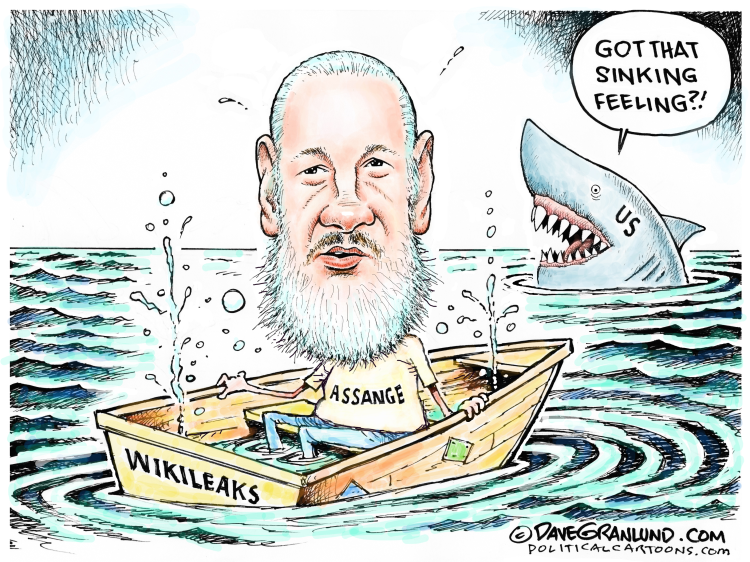Charge Assange with espionage or any other crime for merely publishing the Manning material, this would be another Pentagon Papers case with the same likely outcome.
The Supreme Court ruling in the 1971 case, did not say that the newspapers that were planning to publish the Pentagon Papers could not be prosecuted if they published classified material. It only said they could not be restrained that is, stopped in advance from publishing them. They did publish, and they were not prosecuted.
Prosecutors have chosen to charge him with conspiracy to help Manning break into a government computer to steal classified material. Such a crime, if proven beyond a reasonable doubt, would have a far weaker claim to constitutional protection.
It alleges that "Assange encouraged Manning to provide information and records" from government agencies. It alleges that "Manning provided Assange with part of a password" and that "Assange requested more information." But it goes on to say that although Assange had "been trying to crack the password," he had "no luck so far." Not the strongest set of facts!
The last question is whether Manning will testify against Assange.
[Alan Dershowitz, opinion contributor, The Hill]

No comments:
Post a Comment